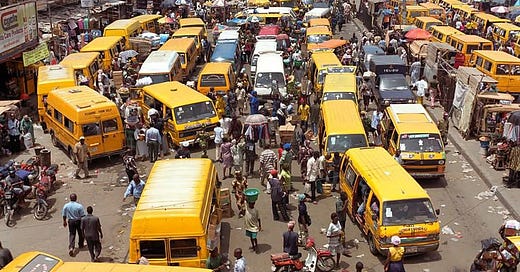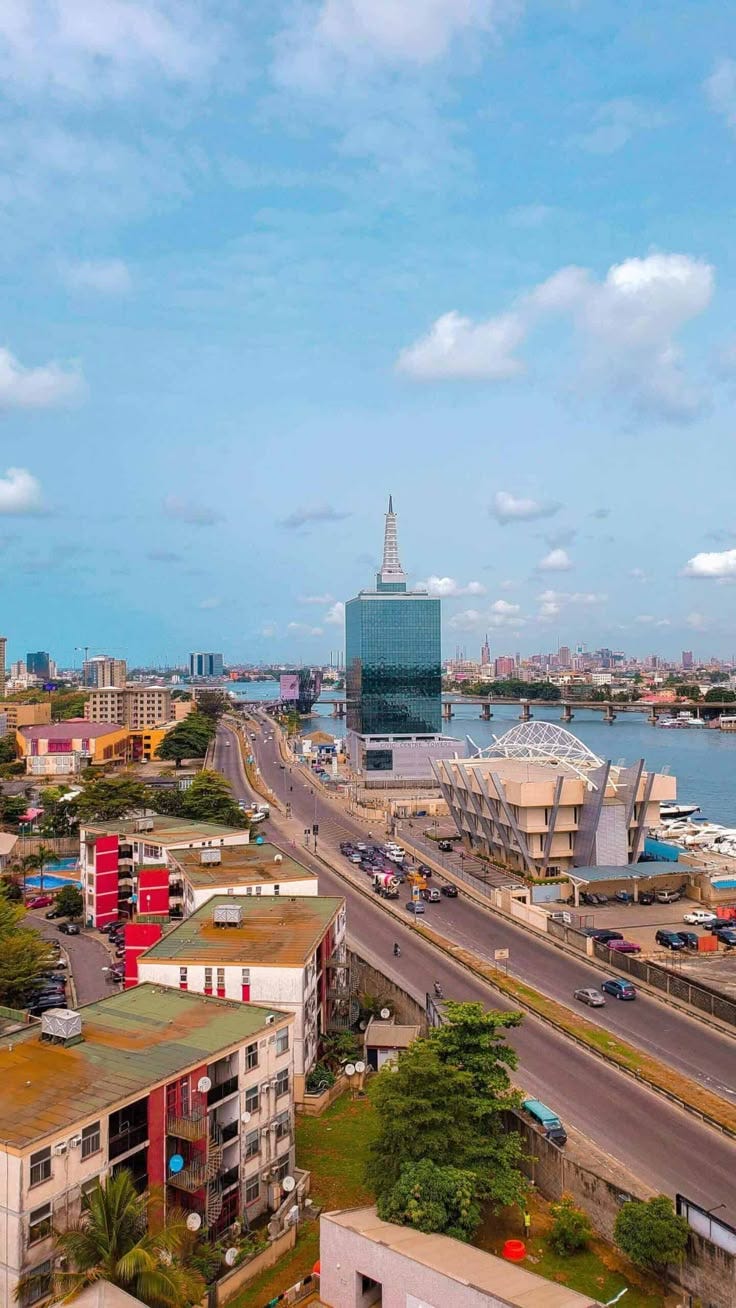We Must Decenter Lagos: Let Lagos Rest
For decades, Lagos has stood as the face of modern Nigeria. It is where dreams seem within reach, where industries flourish, where cultural trends begin, and where ambition finds momentum. From the towers of Victoria Island to the bustling tech hubs in Yaba and the chaotic charm of Balogun Market, Lagos has built itself into a symbol of possibility. But behind the energy, the hustle, and the glow, there is an uncomfortable truth we have long avoided: Nigeria’s over-reliance on Lagos as the nerve center for almost everything business, culture, opportunity, recognition is not only unfair to other regions, it is actively hurting the entire country, Lagos included.
Lagos was never built to carry this much weight. The city's infrastructure, originally designed for a few hundred thousand people, is now groaning under the pressure of over 20 million residents. Despite no longer being Nigeria’s capital since 1991, Lagos has retained and even grown its dominance in the national psyche. It remains the place where everything seems to happen: where investors go, where foreign embassies operate, where music and film careers are launched, where job seekers migrate, and where social status often gets defined.
Yet, this gravity comes at a cost. Lagos has become overcrowded, chaotic, and unsustainably expensive. Every day, thousands of new arrivals enter the city with hope in their hearts and CVs in their bags, only to encounter reality: sky-high rent, intense competition, long commutes, limited job openings, and often, disillusionment. The roads are clogged, the air is polluted, and the power supply is unreliable. Housing shortages have led to vast slums, where millions live without access to clean water, proper drainage, or electricity. Floods now arrive with every rainy season, displacing families and damaging property, turning entire communities into waterlogged islands.
But even more troubling than the physical toll on Lagos is the national imbalance it creates. This city, with all its opportunities, cannot represent the whole of Nigeria. When every major event, conference, fashion show, award ceremony, tech festival, or international partnership happens in Lagos, the message is clear: other states are invisible unless they come to Lagos. It reinforces the belief that success has one address.
Meanwhile, the rest of Nigeria is being slowly erased from national imagination. Regions with rich potential, cultural, economic, and intellectual, are reduced to footnotes. Young people from states like Ebonyi, Benue, Gombe, Kebbi, or Delta don’t necessarily lack talent or ambition; they simply lack access. They are not given the chance to dream from where they stand. Schools are underfunded. Creative spaces are non-existent. Opportunities for growth, exposure, and innovation are limited. And so, the cycle repeats: migrate or be forgotten.
This migration is not just physical, it's emotional. People are forced to emotionally detach from their roots in search of validation in a city that may never truly welcome them. Identity becomes shaped by survival rather than belonging. Languages are lost. Local fashion industries fade. Indigenous cuisines are replaced by watered-down versions that appeal to the Lagos palate. And while Lagos continues to grow, the rest of Nigeria shrinks in voice, visibility, and viability.
Economically, this model is reckless. Nigeria is not a small country. It is a federation of over 200 million people, 36 states, and 250 ethnic groups. It cannot afford to pour its lifeblood into one state while expecting the rest to somehow survive on scraps. The over-concentration of industry in Lagos has stifled local economies across the nation. Many state governments, rather than cultivating their own industries and infrastructure, have become dependent on federal allocations. Without pipelines for private sector investment, they lack the means to generate sustainable internal revenue.
This dependency is dangerous. It disempowers leaders from developing homegrown solutions. It strips communities of the dignity that comes with local pride. It leaves entire regions stagnant. And as long as investors continue to be funneled into one city, innovation will remain bottlenecked. A talented software developer in Taraba or a brilliant filmmaker in Osun should not have to uproot their lives just to be seen. The system should come to them, not the other way around.
Even the perception of Nigeria globally is affected. When foreigners visit Lagos, they are told they’ve seen Nigeria. But Nigeria is not Lagos. It is Borno’s resilience, it is Edo’s artistry, it is Akwa Ibom’s hospitality, it is Niger’s waterways and Enugu’s hills. It is the music of the Tiv, the bronze of Benin, the food of the Efik, the stories of the Ijaw. When Lagos becomes the filter through which Nigeria is experienced, we lose the authenticity of our diversity.
And Lagos itself is not winning. The city is being stretched to breaking point. Resources that should be enough are never sufficient. Law enforcement struggles to keep pace with the growing population. Healthcare facilities are overburdened. Public schools are crowded. Transport systems buckle under pressure. The cost of living continues to rise, while the quality of life stagnates. And yet, people keep coming because they believe they have no other choice.
It doesn’t have to be this way.
Nigeria must embrace a new imagination, one where development is not about copying Lagos but cultivating every region’s unique strengths. Every state has something to offer, whether it’s tourism, agriculture, tech, manufacturing, or culture. But it will take policy, investment, and trust to make this happen.
The private sector must lead with boldness: open offices in Ilorin, host art exhibitions in Makurdi, build film studios in Aba, fund startups in Zaria. The government must invest in roads, energy, internet, and housing in every region, not just the big cities. Schools and universities across the nation should receive the same attention as the ones in Lagos or Abuja. Talented teachers, creatives, doctors, and engineers should be able to live in their home states and still contribute meaningfully to the national economy.
This is not just about fairness it is about survival. Lagos cannot hold the entire country on its back. Sooner or later, it will collapse under the weight. The solution is not to expand Lagos further, but to expand the map of opportunity.
Let us imagine a Nigeria where a girl from Jalingo doesn’t have to leave her family to pursue her passion for robotics. Where a boy from Calabar doesn’t need to abandon his community to become a successful actor. Where a young woman from Minna can build a fashion brand without needing to relocate to Lekki.
That Nigeria is possible.
It begins with refusing to make Lagos the only option. It begins with recognizing that greatness does not only live in one place. It lives in every village, every small town, every city that has been waiting not for handouts, but for visibility.
Lagos will always be important. It is a beautiful, ambitious, and vibrant city. But it is not the only city. And if we keep acting like it is, we will lose the soul of Nigeria one neglected state at a time.
Let Lagos breathe. Let the rest of Nigeria rise.






